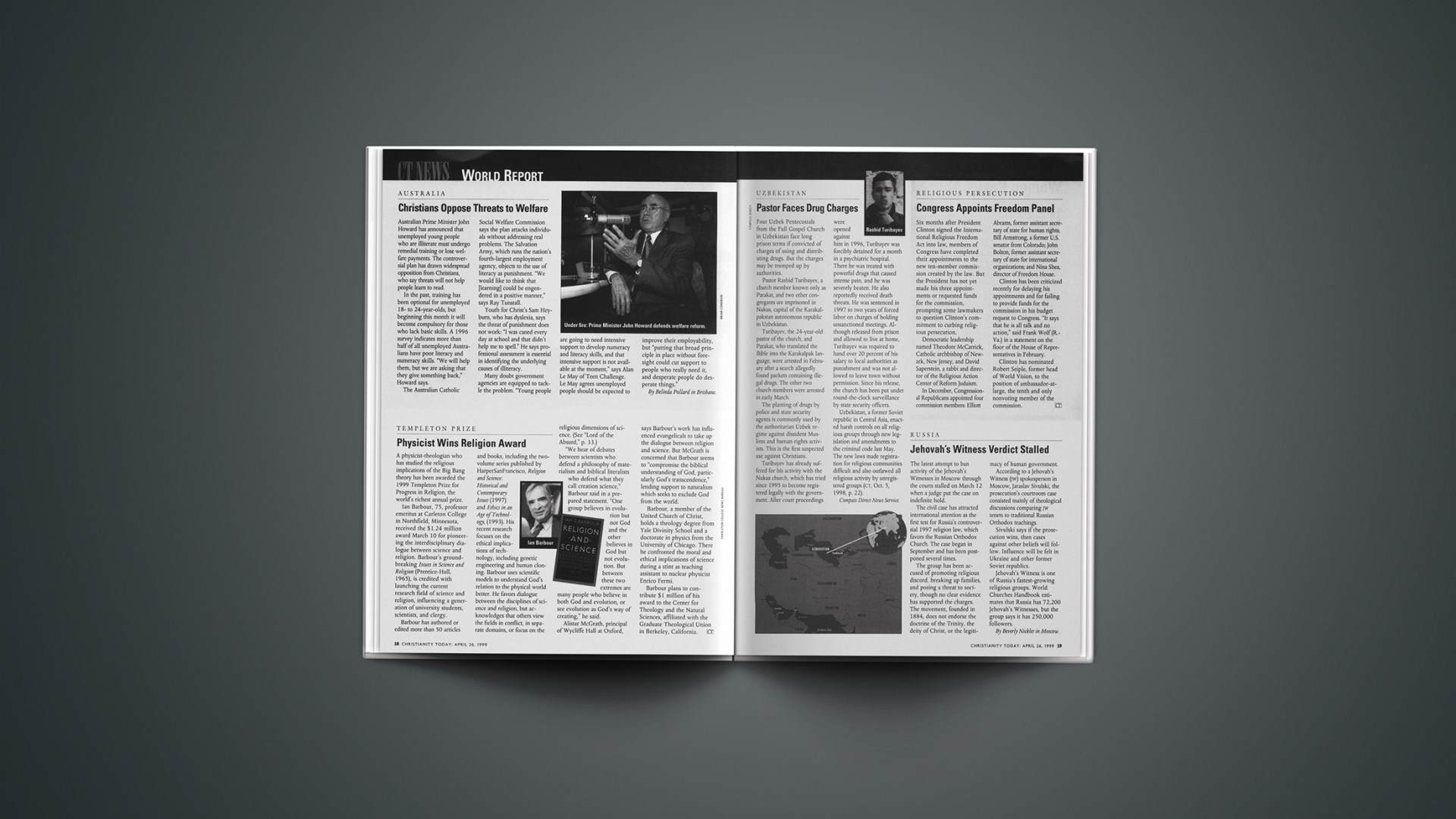The latest attempt to ban activity of the Jehovah’s Witnesses in Moscow through the courts stalled on March 12 when a judge put the case on indefinite hold.
The civil case has attracted international attention as the first test for Russia’s controversial 1997 religion law, which favors the Russian Orthodox Church. The case began in September and has been postponed several times.
The group has been accused of promoting religious discord, breaking up families, and posing a threat to society, though no clear evidence has supported the charges. The movement, founded in 1884, does not endorse the doctrine of the Trinity, the deity of Christ, or the legitimacy of human government.
According to a Jehovah’s Witness (JW) spokesperson in Moscow, Jaraslav Sivulski, the prosecution’s courtroom case consisted mainly of theological discussions comparing JW tenets to traditional Russian Orthodox teachings.
Sivulski says if the prosecution wins, then cases against other beliefs will follow. Influence will be felt in Ukraine and other former Soviet republics.
Jehovah’s Witness is one of Russia’s fastest-growing religious groups. World Churches Handbook estimates that Russia has 72,200 Jehovah’s Witnesses, but the group says it has 250,000 followers.
Copyright © 1999 Christianity Today. Click for reprint information.










